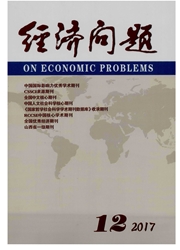

 中文摘要:
中文摘要:
文章构建模型从理论上考察了承接国际外包对我国行业工资差距的影响机制.并利用1995~2011年中国工业行业面板数据和基于回归方程的Shapley值分解方法.从实证上分析了参与全球价值链分工和承接国际外包对我国1995—2011年36个工业行业工资差距的影响效应.、研究表明.总体上承接国际外包通过资源重组、技术进步、劳动力技能需求升级等效应带动了我国制造业行业工资不断上涨。按要素密集型分类的估计结果显示,承接国际外包对我国不同要素密集型行业的工资增长具有明显的差异性。其中,承接工业外包对我国资本密集型产业工资的拉动效应更大,而承接国际服务外包对我国劳动密集型产业的工资拉动效应更大.全球化进程带动了我国机械制造、电子通讯等参与全球化分工程度较高的产业行业工资的快速增长,拉大了我国劳动密集型行业与资本密集型行业之间的工资差距。同时.基于回归方程的Shapley值分解结果显示,国有垄断、产业规模和全球化等因素仍然是影响我国行业工资差距的最重要因素.在中国加入WTO以后,承接全球外包对我国行业总体工资差距的贡献率呈现明显上升的趋势。
 英文摘要:
英文摘要:
This paper constructs a model to analyze the effect of undertaking international outsourcing on the inter-industry wage inequality in China. It uses the panel data of Chinese industries and the decomposition method based on the Shapley approach to study the effect of globalization and undertaking international outsourcing on the 36 industries' wage inequality from 1995 to 2011. The result shows that the undertaking of international outsourcing improves the growth of the industry wages through resource rearrangement, technology progress and labor skill demand increase. By dividing the industries into labor and capital-intensive industries, it finds that undertaking international outsourcing has a different effect. Undertaking industry outsourcing has a bigger effect of improvement on the wages of capital-intensive industries, but undertaking service outsourcing has a bigger effect on the wages of labor-intense industries. Globalization has driven the fast growth of labor earnings in the industries of machinery manufacturing, electronics and communications, and has enlarged the wage inequality between labor and capital-intensive industries. It also concludes that state monopoly, industry output scale and globalization are the key factors influencing the industries' wage inequality, outsourcing has been in a trend of remarkable and the effect of undertaking international increase after China's entry into WTO.
 同期刊论文项目
同期刊论文项目
 同项目期刊论文
同项目期刊论文
 期刊信息
期刊信息
